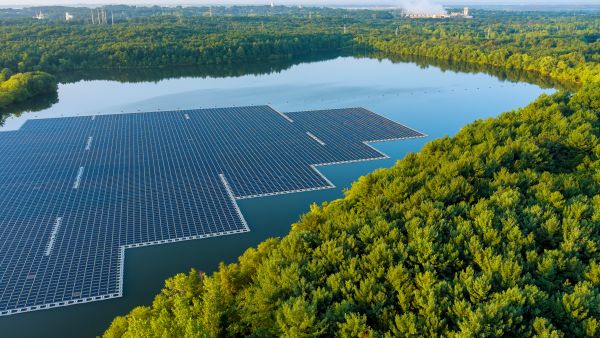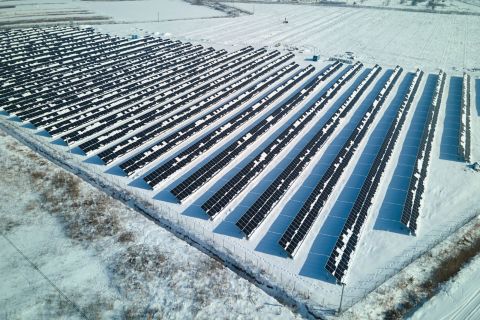ALBAWABA - In the wake of a legislative push for energy reforms, the spotlight is now on Floating Solar Energy Plants (FPV) in Turkey, a move aimed at curbing water evaporation and safeguarding precious water resources while generating electricity. The country's FPV potential is estimated to be a staggering 80,000 megawatts.
The recently approved legislative proposal, amending the Mining Law and other relevant statutes, has paved the way for increased focus on Floating Solar Energy Plants (FPV) in Turkey. The primary goal is to counter water evaporation, especially in reservoirs and wetland areas, providing a dual benefit of electricity generation and environmental conservation. Turkey's FPV potential is estimated to be around 80,000 megawatts.
The legislative amendments, which cover areas such as energy, industry, trade, and technology, were greenlit by the Turkish Grand National Assembly's Industry, Trade, Energy, Natural Resources, Information, and Technology Commission.
According to insights from Natura Sustainability, a global adoption of FPV, covering 30% of the world's 115,000 reservoirs, could result in an annual electricity production of nearly 9,500 terawatt-hours. To put this in perspective, Turkey's annual electricity production currently stands at approximately 330 terawatt-hours.
With a rising global interest in renewable energy, FPV emerges as a versatile and effective solution. Recent developments in the solar energy sector indicate a growing trend, driven by both post-COVID-19 economic recovery plans and the impact of heightened energy prices due to geopolitical events like the Russia-Ukraine conflict.
Turkey Aligns with Global Trends in Solar Energy
Solar energy, adaptable to various locations such as rooftops, building facades, fields, agricultural lands, water ponds, and reservoirs, is gaining popularity with different designs and capacities. Turkey, aligning itself with similar global policies, aims to diversify the use of this renewable resource and create new avenues for investment.
Among all low-carbon technologies, solar panels alone are estimated to prevent an annual emission of 4.9 gigatons of carbon dioxide until 2050, contributing to 21% of the total emission reduction.










